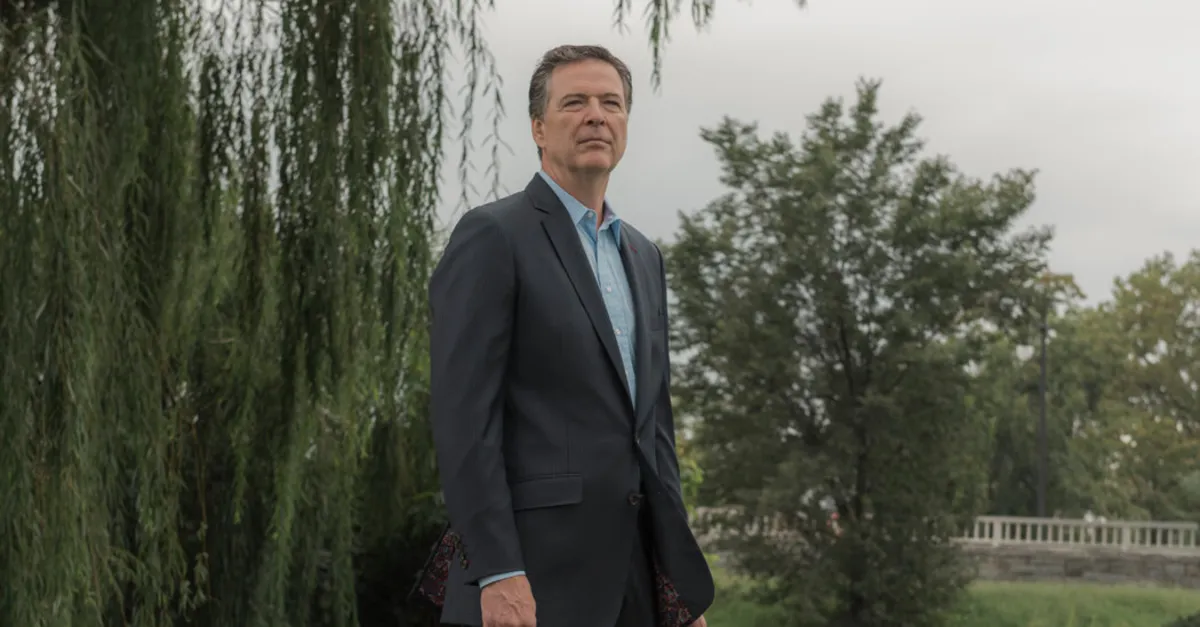
The proceedings at the federal courthouse in Alexandria, Virginia, on Wednesday morning will display the typical characteristics of any standard arraignment. The accused, James B. Comey, the former director of the F.B.I., will stand before a judge, hear the charges levied against him, and sign the necessary paperwork. However, this initial court appearance is anything but ordinary. It carries significant political and legal ramifications, as Comey faces allegations of lying to Congress from five years ago.
The indictment of Mr. Comey stands as a landmark legal action, especially considering his role in initiating the investigation into the Trump campaign’s alleged connections to Russia during the 2016 election. This case signifies the most substantial legal measures taken against individuals whom President Trump has publicly targeted for perceived retribution. The indictment was presented to a grand jury on September 25, despite opposition from prosecutors in the Eastern District of Virginia. The presentation was conducted by Lindsey Halligan, a White House official hastily appointed by Trump as U.S. attorney after her predecessor concluded there was insufficient evidence to indict Comey.
This indictment came shortly after President Trump urged Attorney General Pam Bondi to pursue legal action against Comey, along with Senator Adam B. Schiff and New York Attorney General Letitia James. In a post on his Truth Social platform, Trump expressed frustration, stating, “Nothing is being done. What about Comey, Adam ‘Shifty’ Schiff, Leticia??? They’re all guilty as hell, but nothing is going to be done.”
If convicted, Mr. Comey could face a prison sentence of up to five years. However, many current and former prosecutors believe the case may be challenging to prove, especially if Comey's legal team successfully moves to have the charges dismissed. In a video released shortly after the charges were announced, Comey stated, “My family and I have known for years that there are costs to standing up to Donald Trump, but we couldn’t imagine ourselves living any other way. We will not live on our knees, and you shouldn’t either.” He has also assembled a strong defense team, including Patrick J. Fitzgerald, a former U.S. attorney known for prosecuting high-profile terrorism and corruption cases.
The arraignment, originally set for Thursday, was moved up a day by the chief judge of the district court, citing logistical and security concerns. This aspect of the proceedings is particularly significant for President Trump, who has often focused on the visual elements of political events, having gained national attention as a reality television star.
Reports indicate that an agent in the F.B.I.’s Washington field office was suspended for refusing to arrange an escort of uniformed law enforcement officials to accompany Comey into the courthouse for a media spectacle. Although Comey has only been issued a summons to appear in court, arrests can occur in similar cases. For instance, in 2022, Peter Navarro, a longtime Trump adviser, was taken into custody, a move deemed overly aggressive by the presiding judge.
Ms. Halligan, who secured a two-count indictment after a challenging appearance before the grand jury, has reportedly struggled to find support from her colleagues in the U.S. attorney’s office. This has led to the assignment of two prosecutors from the Eastern District of North Carolina, Tyler Lemons and Gabriel Diaz, to assist with the case.
The case has created a tense atmosphere in the Eastern District of Virginia, a crucial federal prosecutor’s office. Erik S. Siebert, the former U.S. attorney for the district, faced intense pressure from Trump after stating there was insufficient evidence against Comey. Siebert resigned shortly after the president called for his dismissal. Following this, Trump-appointed officials dismissed two top career prosecutors who also disagreed with the indictment of Comey.
The indictment against Mr. Comey is relatively brief, consisting of only two pages and signed solely by Halligan. Comey faces one count of making a false statement and another count of obstruction of a congressional proceeding related to his testimony before a Senate committee in September 2020. It is worth noting that Halligan attempted to secure a second false statement charge, which was ultimately rejected by the grand jury.
Comey is not the first former F.B.I. director to encounter criminal charges. In 1978, L. Patrick Gray, a former acting head during the Watergate scandal, was indicted on charges related to conspiring to violate the constitutional rights of Americans. He was accused of authorizing agents to conduct warrantless searches in pursuit of members of the Weather Underground, a radical leftist group. Those charges were eventually dropped two years later.